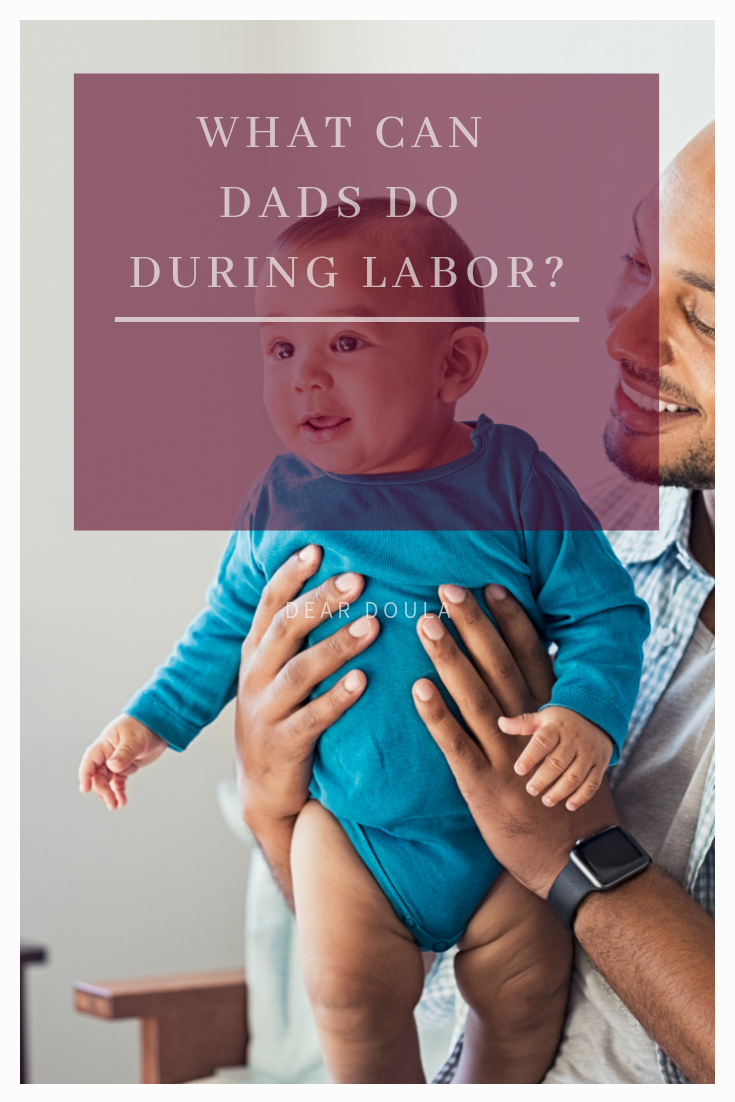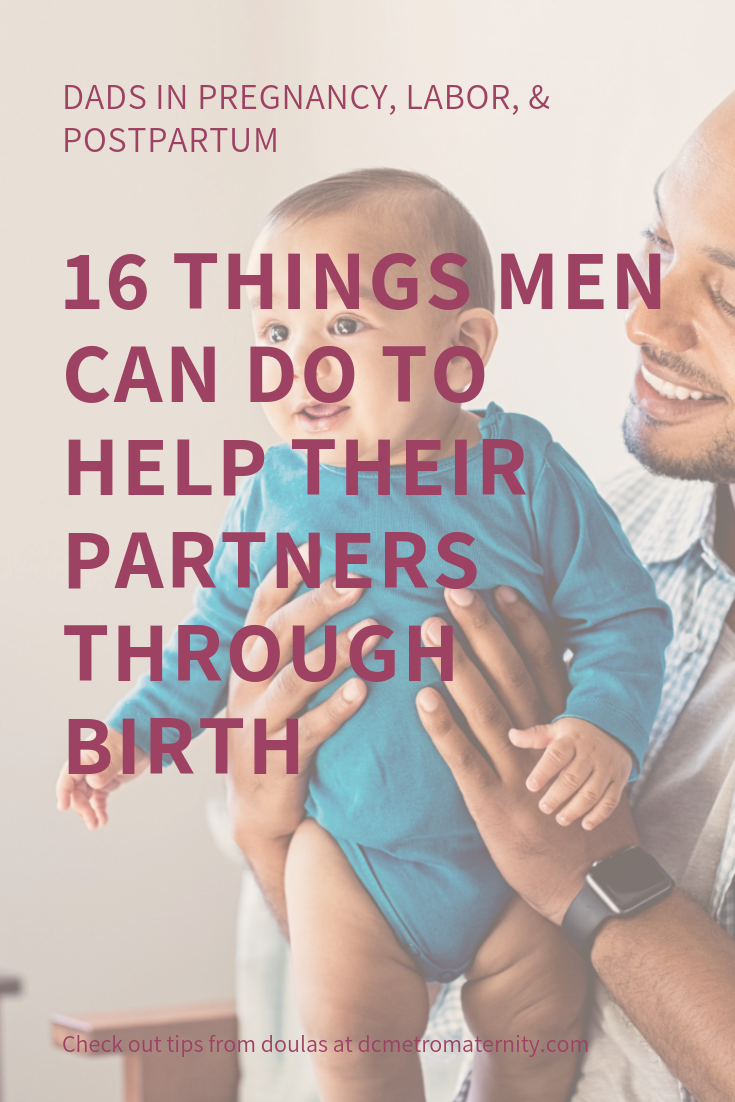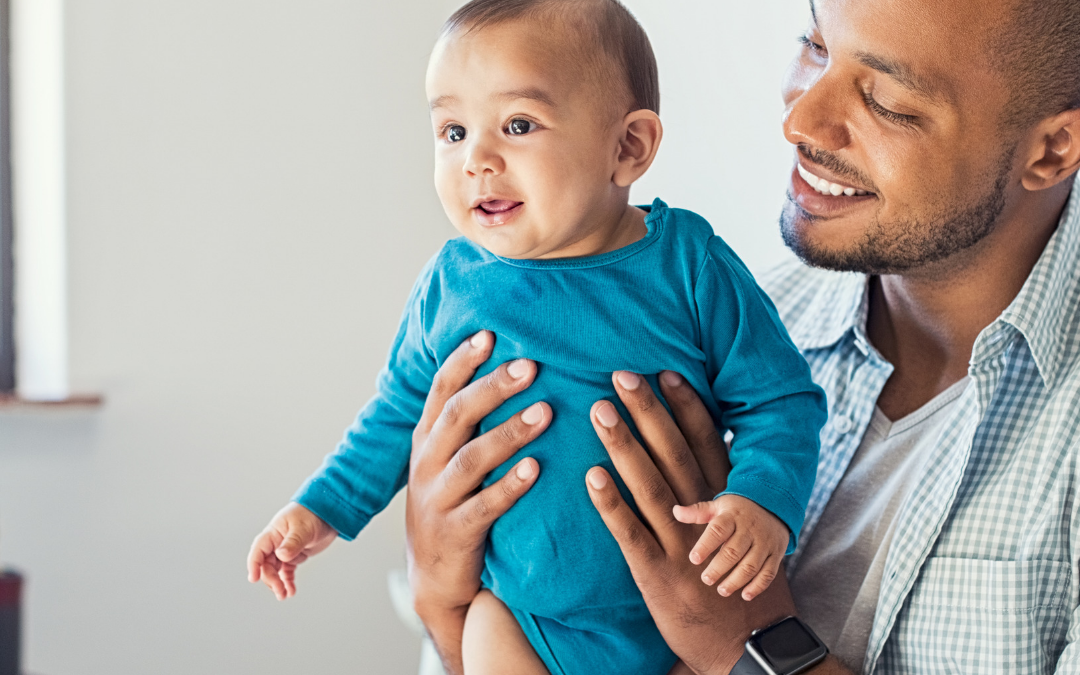Sometimes when women call us looking for a labor doula, they aren’t worried about themselves. They’re worried about their partners. To be blunt, they’re worried the dads to be- husbands, boyfriends, and children’s fathers. (Women having babies together often have a different set of concerns).
Pregnant women say things like-
“He just doesn’t seem involved in planning for the birth. It’s hard to tell what he’s thinking.”
“I wish he understood what I needed, without me having to tell him. Having to explain everything is exhausting.”
“I’m worried he’s going to faint while I’m having the baby. He’s a little squeamish.”
“Whenever I’m stressed out, or in pain, I get really frustrated with him. Then I have an attitude, he checks out and everything gets worse. I don’t want to treat him that way in labor.”
Expectant fathers will say things like-
“I don’t really know what I’m even supposed to do. I mean, I’m not having the baby.”
“How can I relate? I’ll never experience childbirth.”
“I’ve never even held a baby before. I’m worried I’m going to break it.”
And it’s not just new parents’ own fears.
The reality is that throughout pregnancy and early parenthood, doctors and midwives’ appointments, parent support groups and even parental leave are all geared towards pregnant women, and not expectant fathers.
Everyone is asking expectant women how they’re feeling, and often times ignoring how her relationship or her partner himself is.
In talking to many women of color, there’s an assumption that there isn’t a father around throughout their pregnancy. And folks on the labor and delivery unit subtly suggest that a man with them in the delivery room isn’t their husband or committed partner.
It’s unfortunately understandable- society has low expectations for fathers, and black specifically. There’s a huge disconnect from studies that show that black men tend to be more involved with their children, and our own experience as doulas with dads that are caring and attentive to their infants, regardless of their relationship status.
Naturally, this leaves a lot of expectant dads that we meet as doulas, feeling out of the loop and unsure.
Where do men fit into birth? What’s expected of him, and how can he help during labor, and with a new baby?
We’ve learned a few things that we want to share, for men who feel overwhelmed at the thought of becoming fathers, and for the women who need and want their support.
1. There’s more than one way to provide support.
When we’re meeting with couples who are expecting a baby, we ask a few questions to try to get a picture of what role everyone can play:
To her- In a perfect world, what sort of support would your husband provide during birth? What do you want from your boyfriend?
For him- Are you more a quiet calm presence? Do you see yourself as involved and active during birth? How do you feel about blood and guts?
For both of them- How do you handle stress together?

2. Birth and early parenthood are intense for everyone.
Witnessing the birth of a child is really something. Nurses make jokes about fainting during epidurals, pushing or cesareans, and new dads become the butt of jokes.
But let’s be real- labor and childbirth looks like something worth fainting over.
I try to cut guys a bit of slack. When other than labor do we see our loved ones in pain for hours with the understanding that everything is okay? And the idea of one human being emerging from another is straight out of a science fiction movie.
On top of that, the way that doctors and midwives touch women in labor is clinical.
It’s often necessary and correct, but it’s like nothing most men have seen before. The same belly that’s poked and prodded for a fetal heart rate, often is place that a man is used to rubbing affectionately. Her vagina that’s examined clinically during cervical exams is normally reserved for intimate activities. When a vulva stretches and opens to deliver a baby, there’s a spotlight, a crowd watching, and some pretty graphic action happening.
For better or worse, men historically haven’t witnessed birth in the way that fathers are expected to now. It’s intense, and they’re going to have feelings. The sooner we acknowledge that, the better off we’ll all be.
3. Fathers absolutely have a place in birth rooms. As a couple, family or co-parents, you get to determine where that is.
I think of planning a birth similarly to planning a wedding. In some ways, it’s a test for how you’ll do things as a team together. And this one day event isn’t the end goal as much as it is a beginning.

There are dozens of things that a new dad can do during pregnancy and birth that start fatherhood off strong. Here’s an (incomplete) list to start with:
-
Attend prenatal appointments, with doctors, midwives and doulas.
-
Take part in the childbirth education, breastfeeding classes, hospital tours and newborn care classes.
-
Help write the birth plan.
-
Do things to keep the pregnant woman’s stress low.
-
Write important things (appointments, to do lists) down and help her remember things, because pregnancy brain is real.
-
Pack and carry the hospital bag and ensure that the carseat is set up.
-
Let the important people (family, doula, friends) know about labor and birth. OR keep it top secret.
-
Hold her during contractions, massage her in between.
-
Listen to what the doctors or nurses say, and ask questions.
-
Be a calm presence in the room when she’s unsure of what to do.
-
Coach her breathing.
-
Hold a leg during pushing.
-
Cut the baby’s umbilical cord.
-
Take pictures of the first hour after birth.
-
Learn all of the swaddling, soothing and burping techniques that the nurses show you.
-
Track the diapers during the first few weeks.
Make decisions together. Ask questions. Talk about things. As annoying as it might be, neither of you can assume what the other is thinking or wants.
And dads, know that when your labor doula turns and asks you, during a meeting “how are you doing?” she means it.
If you want to know more about how expectant dads can be involved in birth, reach out and let us know. We’d love to help. Schedule a call with us!


